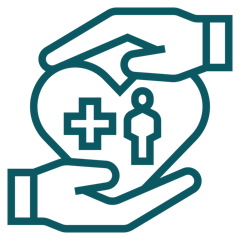Introduction: The CPH Exam Basics
As you’re working on a bachelor's or master's in public health, you’ve likely heard people reference getting certified. What does that mean? Isn’t the degree you’re working on already enough? It may be, but we’re here to tell you more about your options for a certification related to public health. There are three main certifications available for someone with an interest and background in public health: the Certified Health Education Specialist (CHES) exam, the Master Certified Health Education Specialist (MCHES) exam, and the Certified in Public Health (CPH) Exam. These exams are often considered to be counterparts. We have a long-form explanation of the CHES.
In this article, we’ll discuss all aspects of the CPH exam: the purpose of the exam, whether taking the CPH might be worth your time and benefits of taking it, how to prepare for the exam once you’ve decided to take it, and potential career advantages of having the CPH certification.
If you are an undergraduate or graduate public health program student, you’ve likely heard of the CPH certification. This is a national exam designed to demonstrate competency in public health. The CPH is offered by the National Board of Public Health Examiners (NBPHE), and completing the CPH credential is designed to demonstrate both knowledge of and a commitment to public health1. Choosing to complete a certification is an excellent way to demonstrate your commitment to public health, in addition to a degree and any work experience. Taking the time to complete this certification is not something everyone does, so choosing to take the time to do so can make you stand out amongst your peers in the job market.




